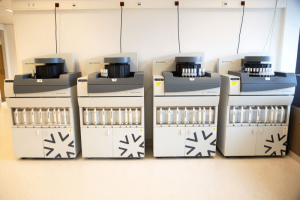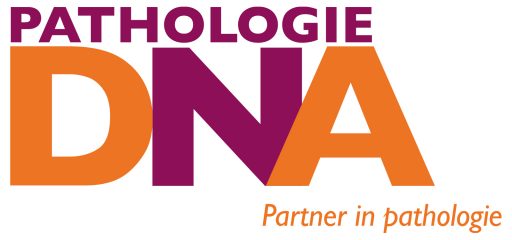Immunohistochemistry
The goal of immunohistochemistry is to show specific cell and tissue components based on immunological traits for either diagnostic or therapeutic purposes. When immunological testing is done on histological material (tissues) or cytological material (cells), we refer to this as immunohistochemistry or immunocytochemistry respectively. This is an additional test. It is requested by the pathologists when routine tests do not give sufficient indications for a certain diagnosis.
Immunological testing can identify specific tumours, for instance. This is done by looking for antibodies (proteins produced by the body to clear diseased cells) that bind to a specific target protein; the antigen. A tumour is characterised by these specific proteins, making it possible to determine what kind of tumour or metastasis it is. In addition, the aggressiveness of a tumour can be determined, and whether hormonal therapy may be effective as treatment. The antigen-antibody bonding is made visible and examined under a microscope by the pathologist who will deliver the result. Based on the result, the clinician determines whether further medical testing or therapeutic treatments are required. Immunohistochemical and immunocytochemical testing may show specific tumours or specific characteristics (hormone receptors). This is important for choosing the right treatment.

Techniques
- Immunopathology
- Immunofluorescence
- In situ hybridization (ISH, FISH, SISH)
